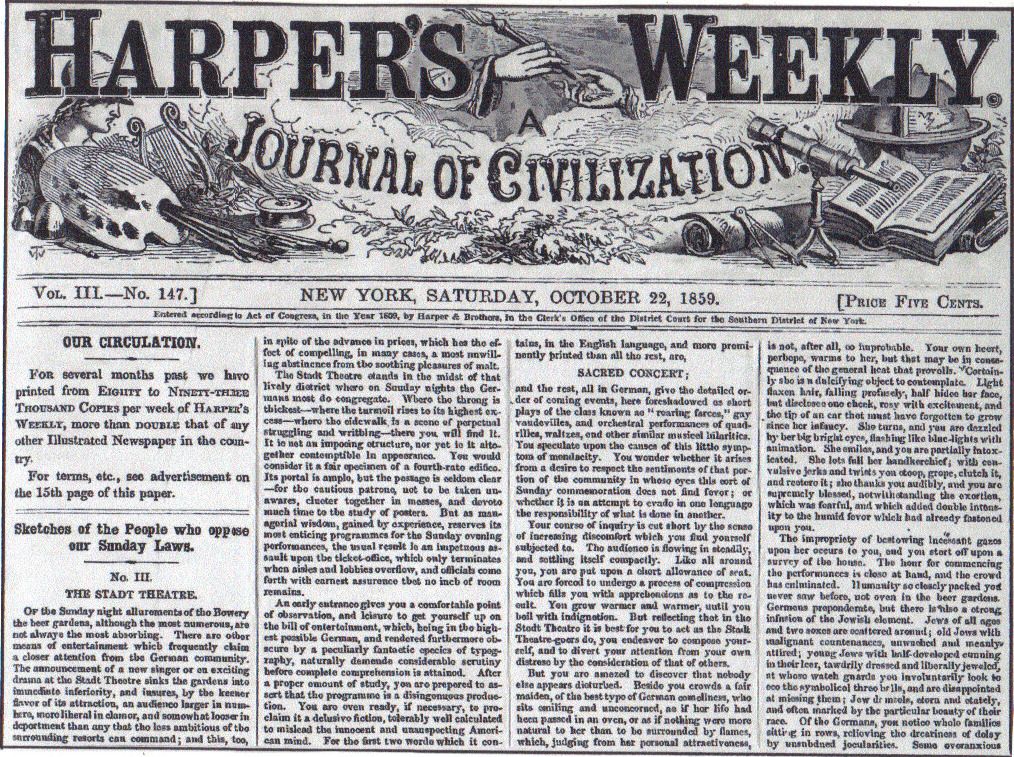
Posted on 10/22/2019 4:41:18 AM PDT by Homer_J_Simpson

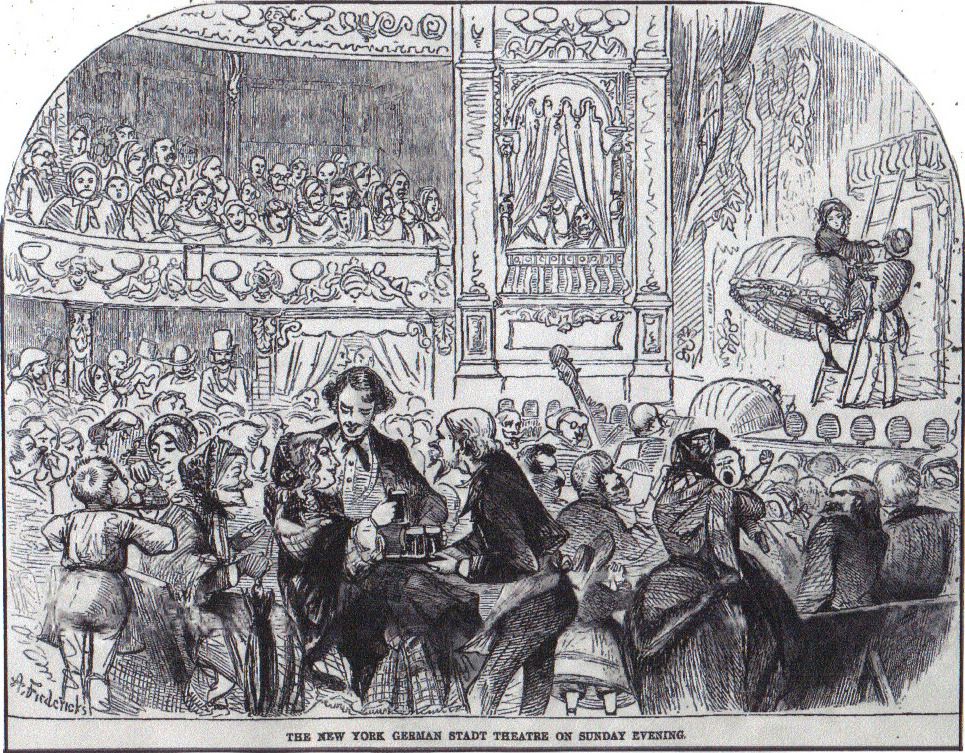
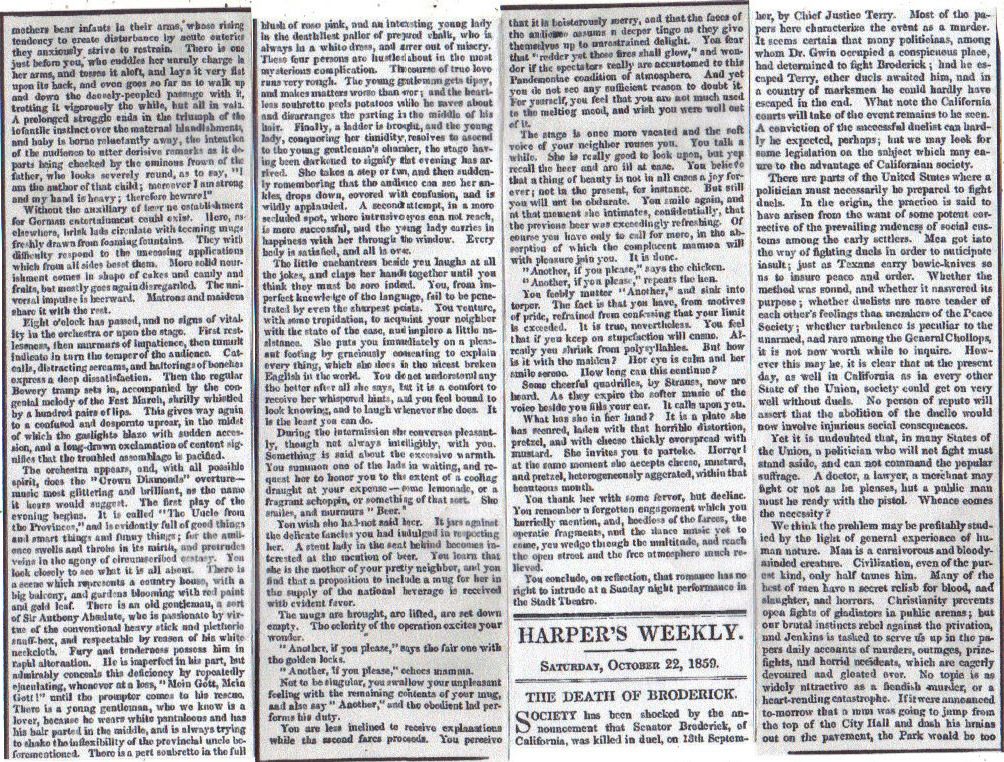
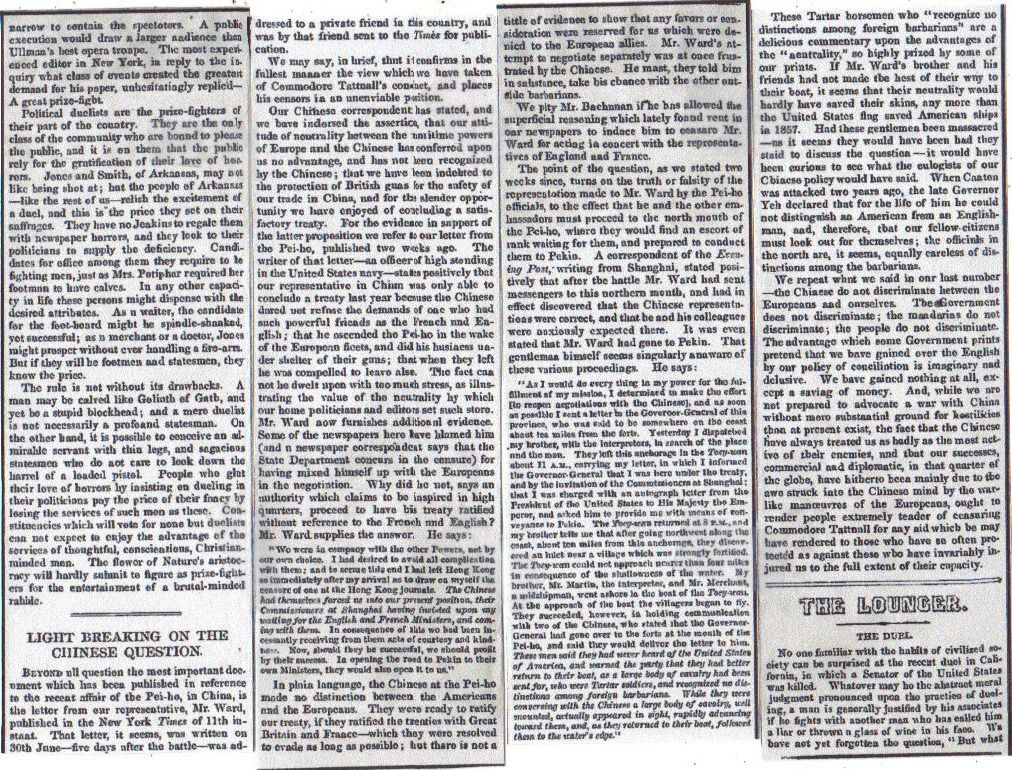
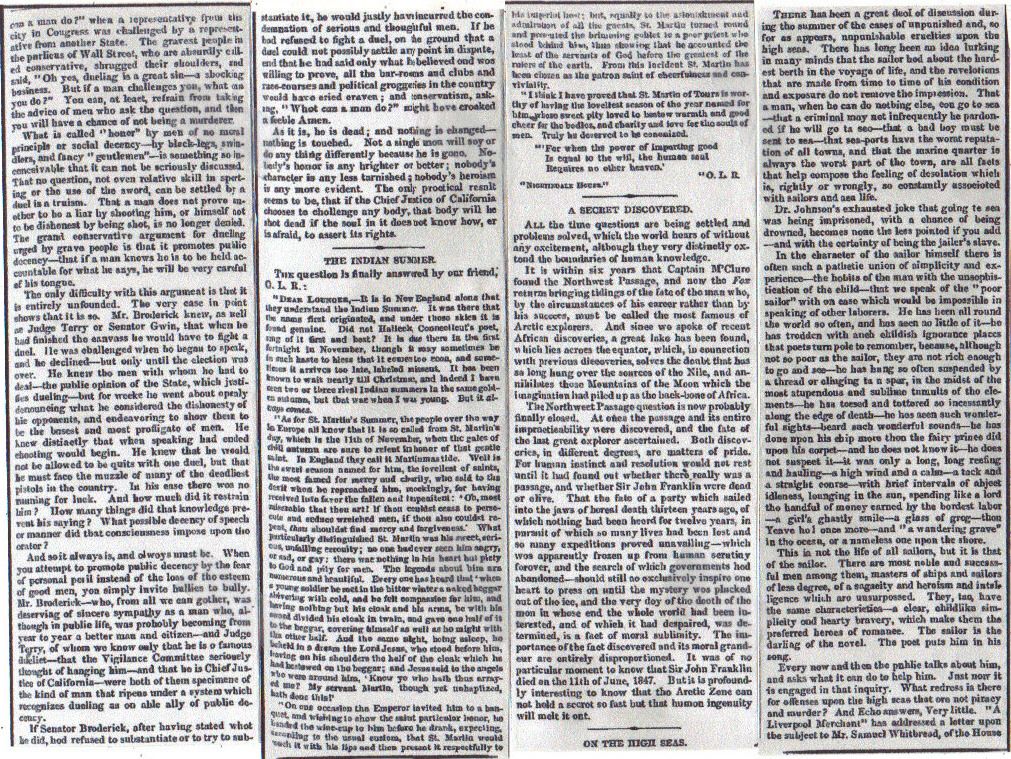
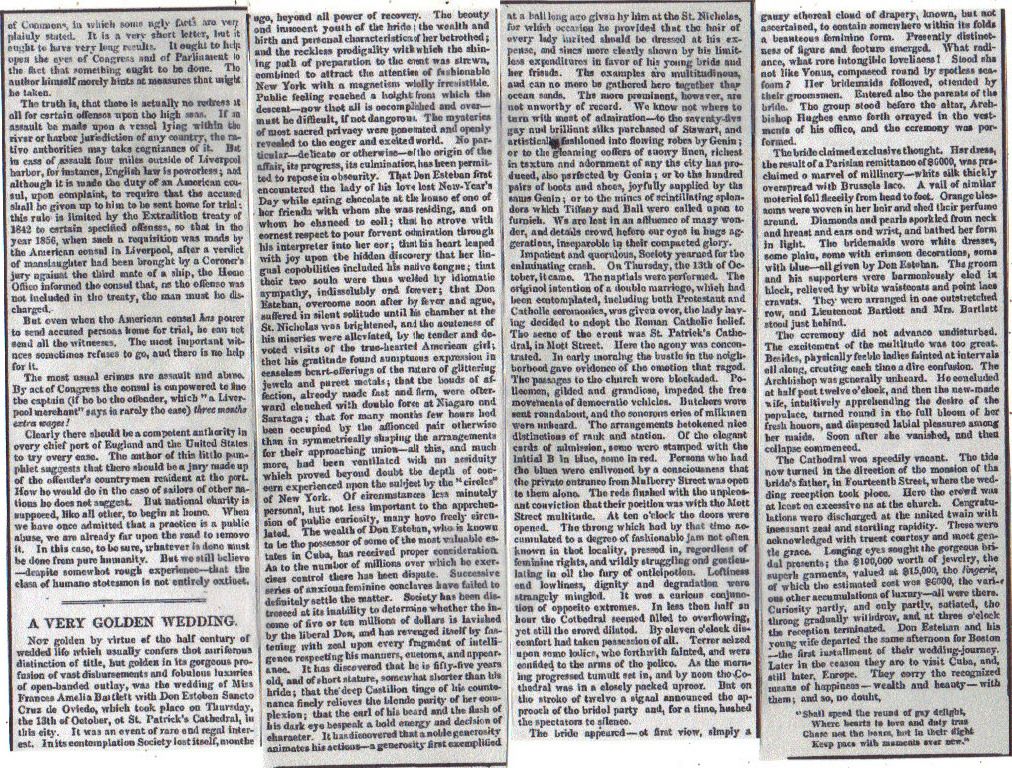
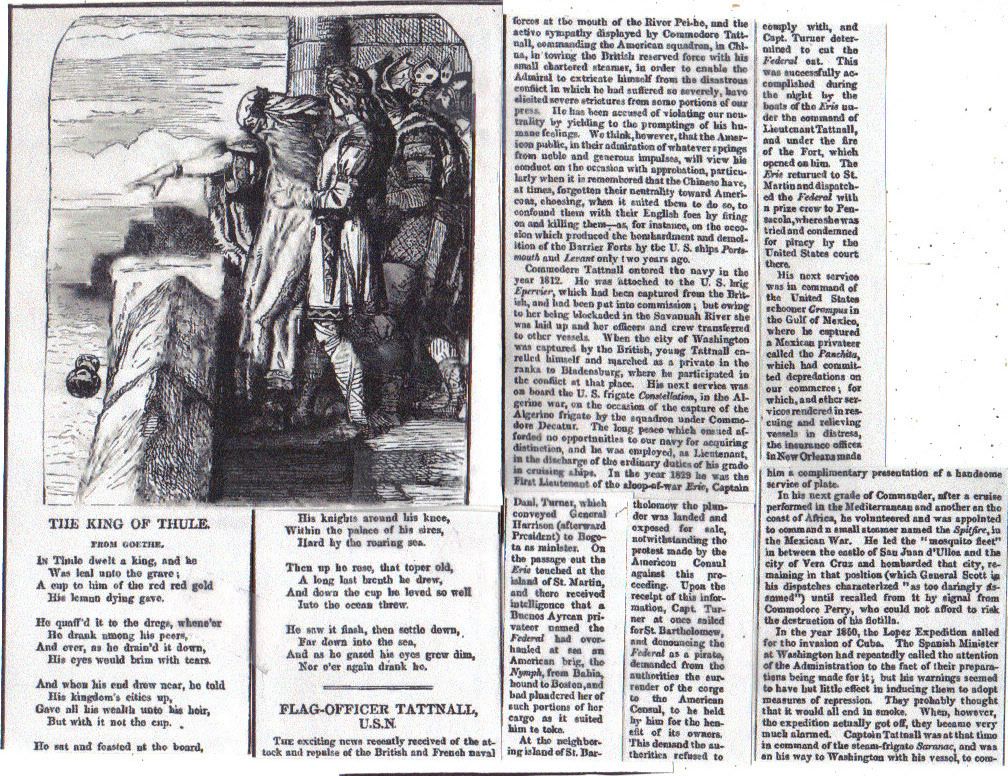
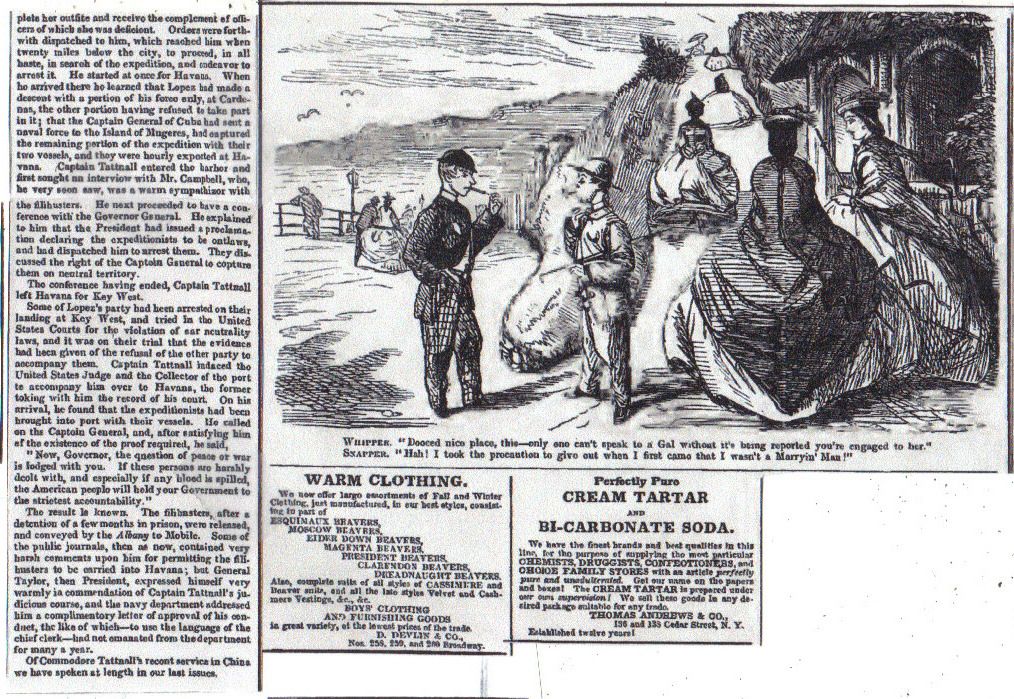
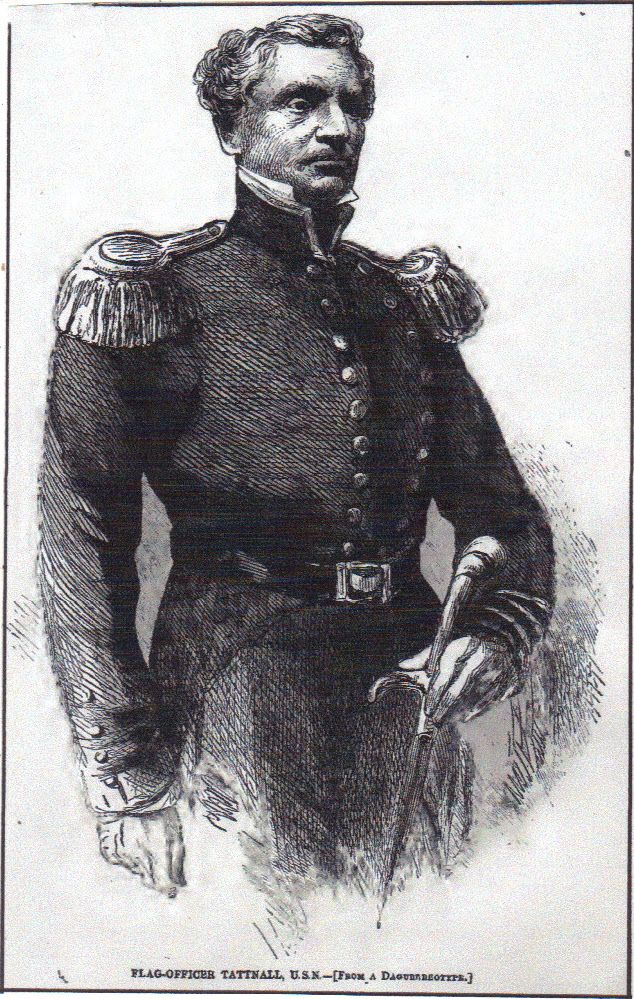
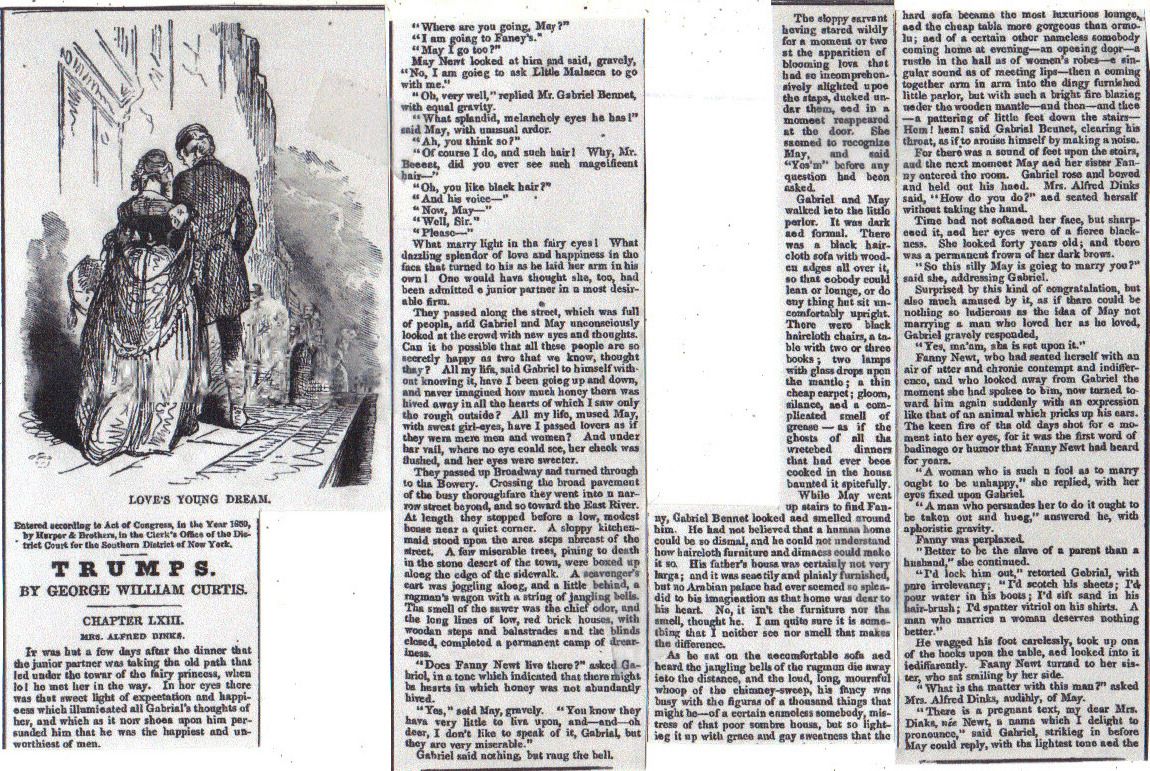
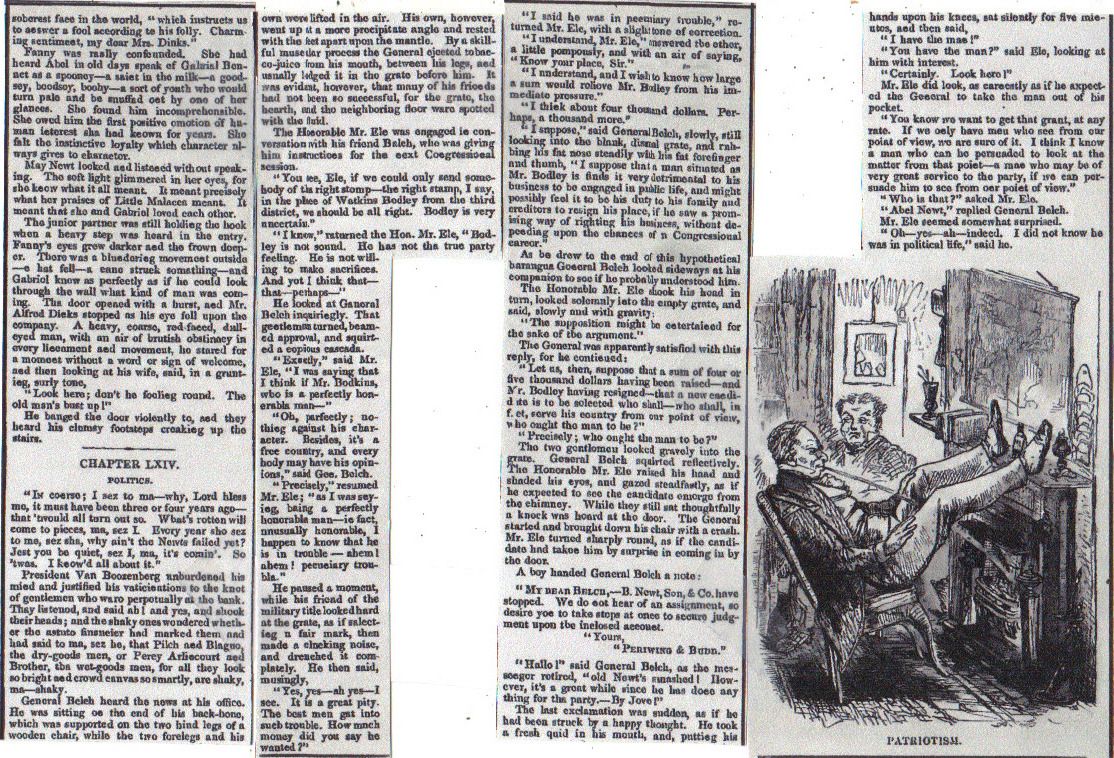
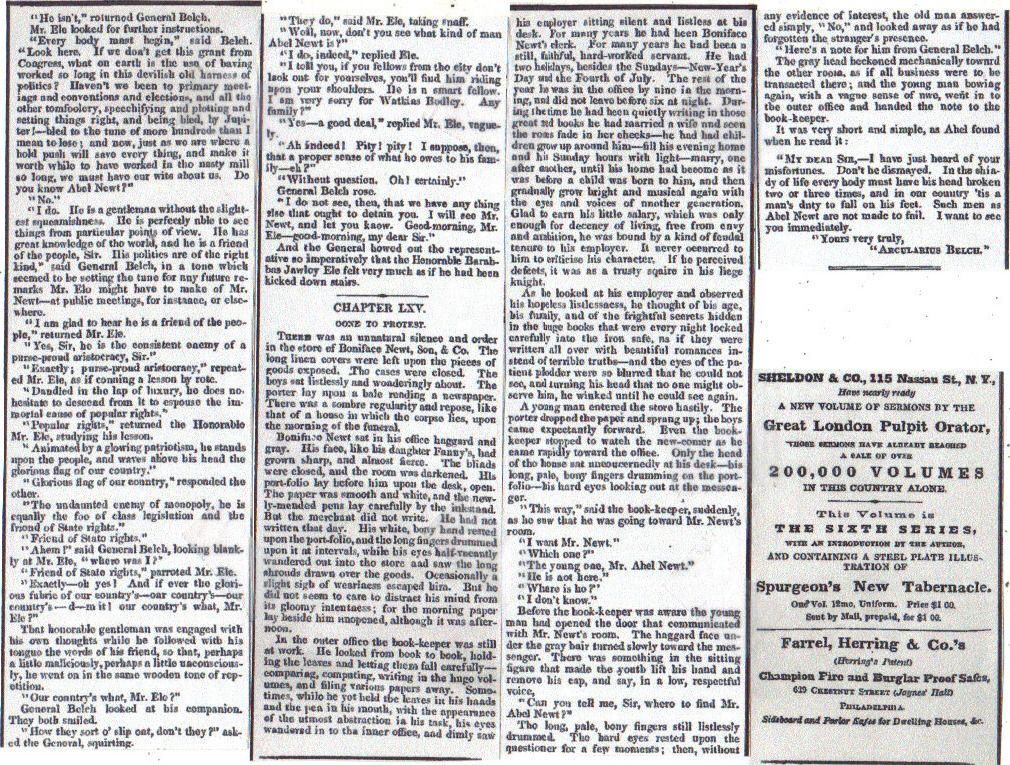
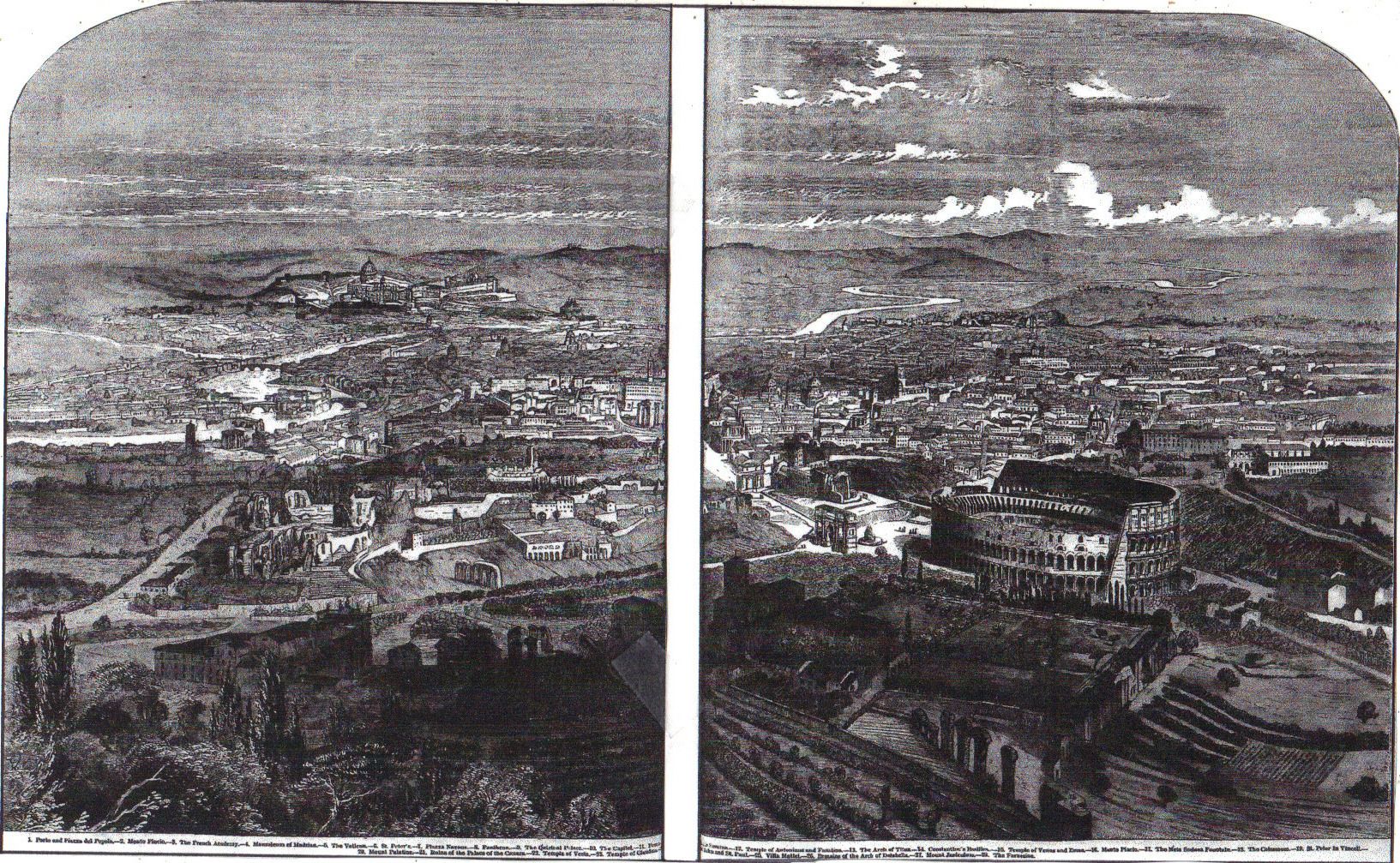
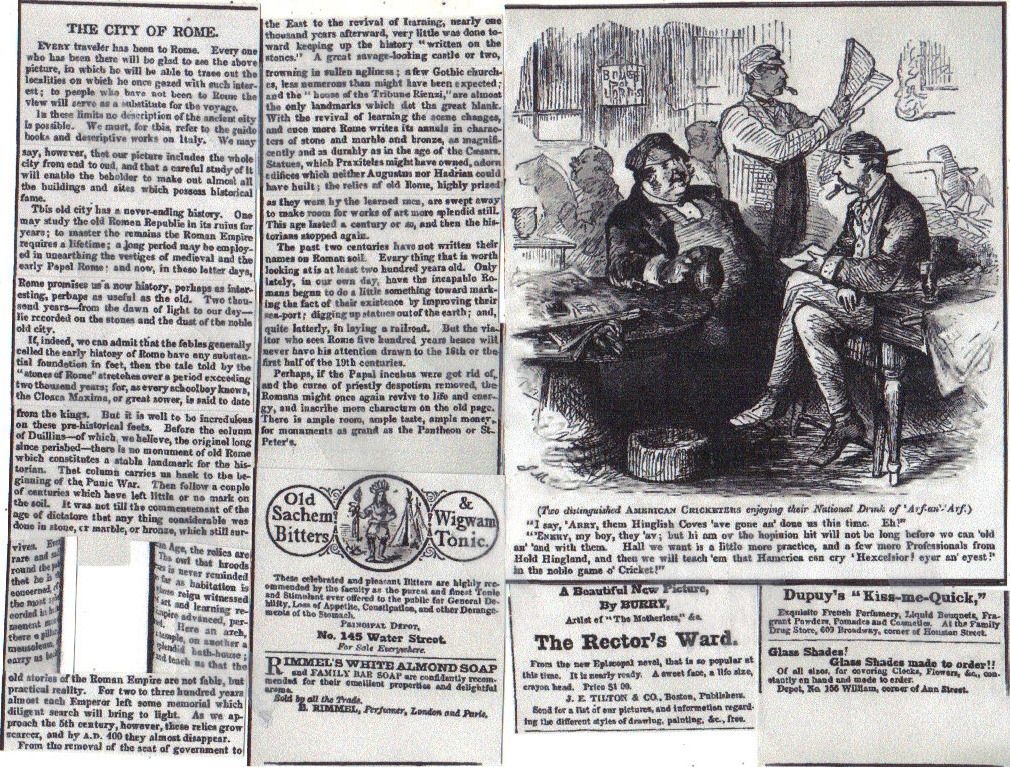
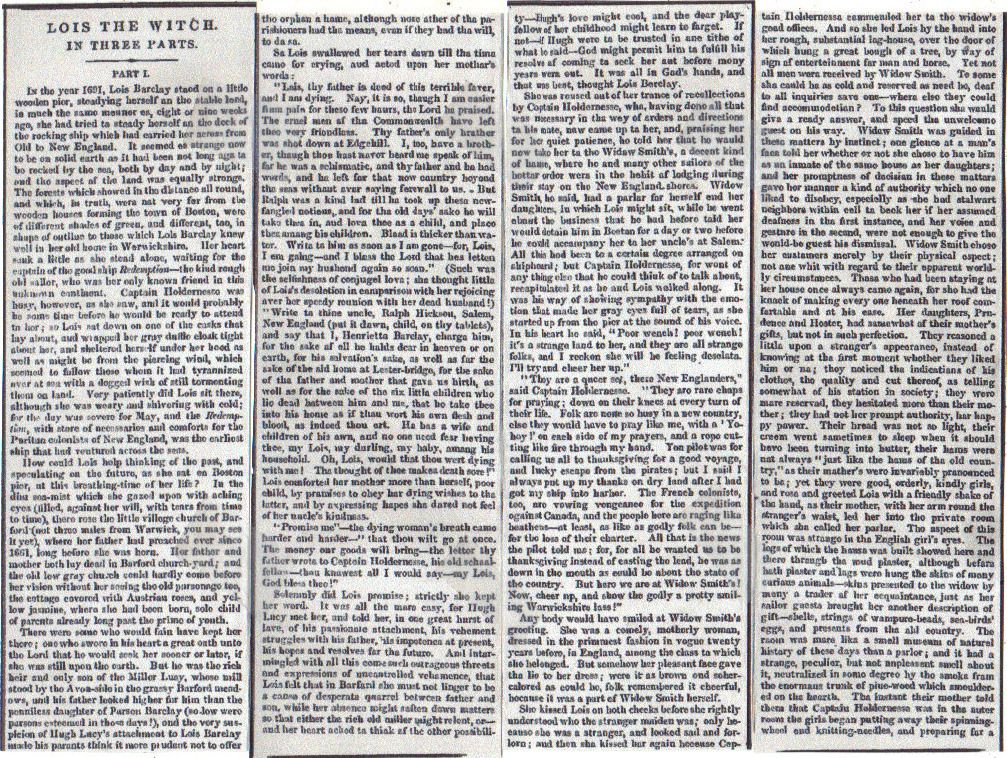
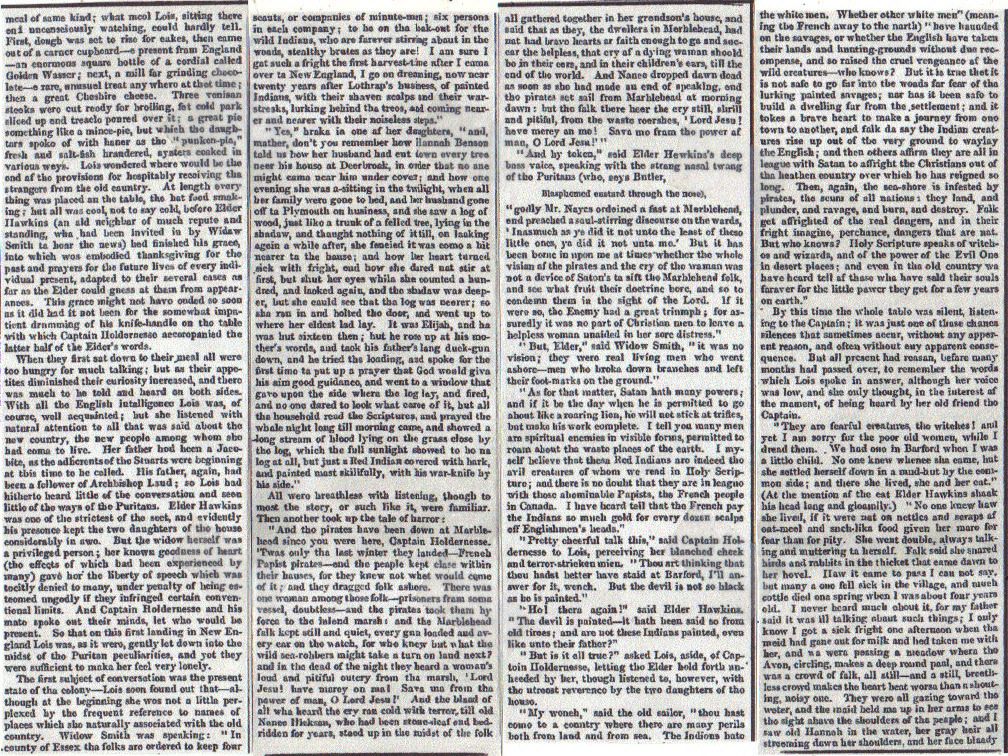
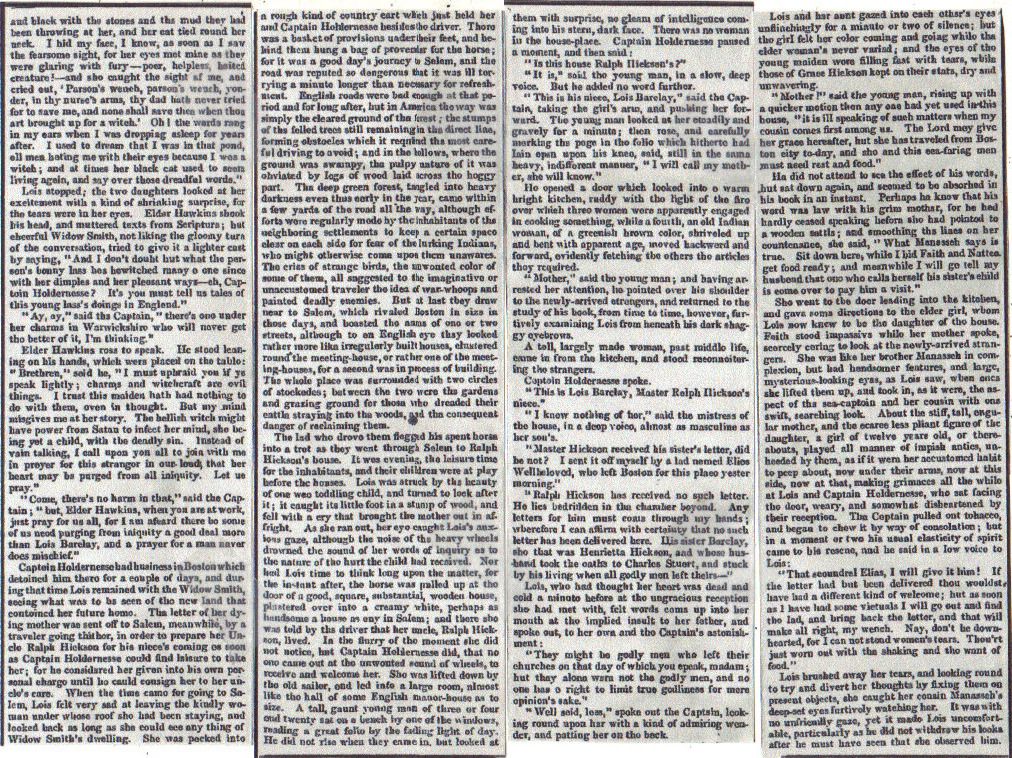
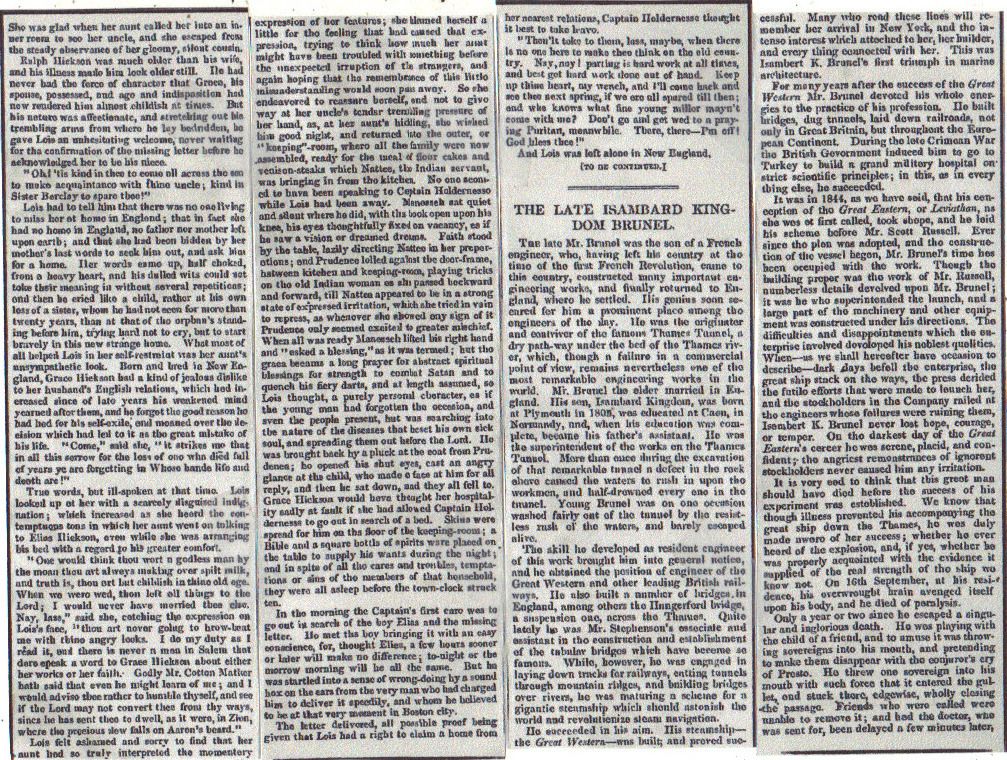
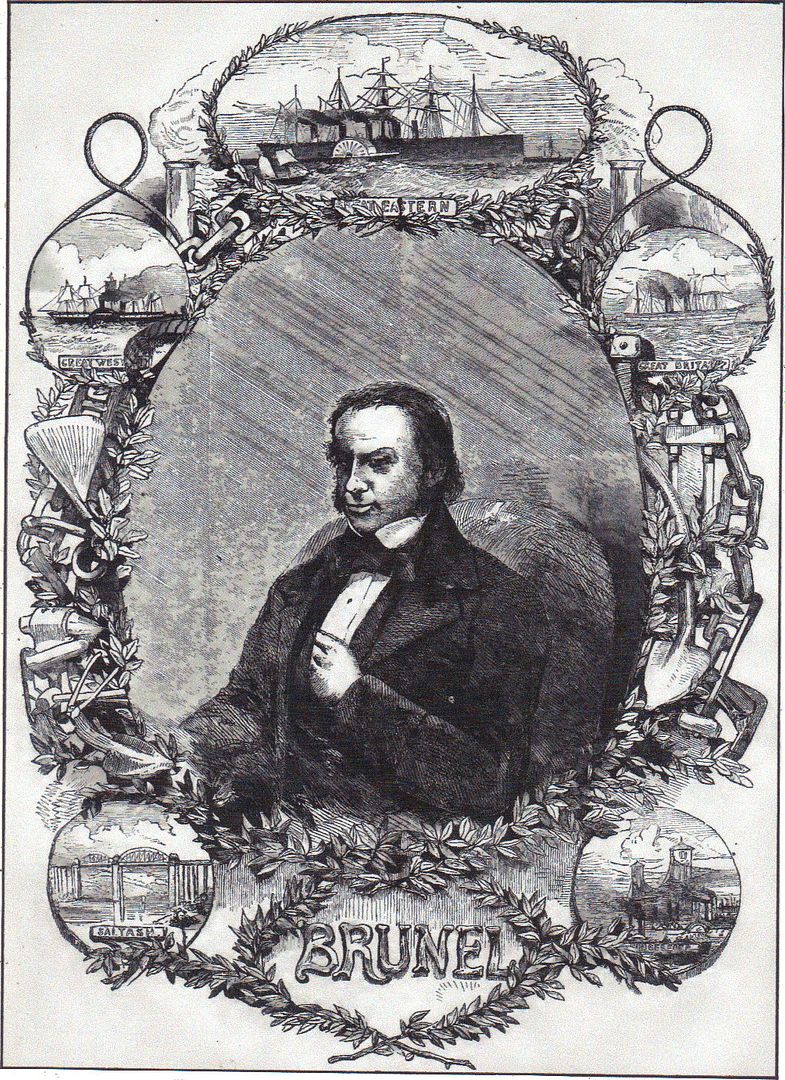
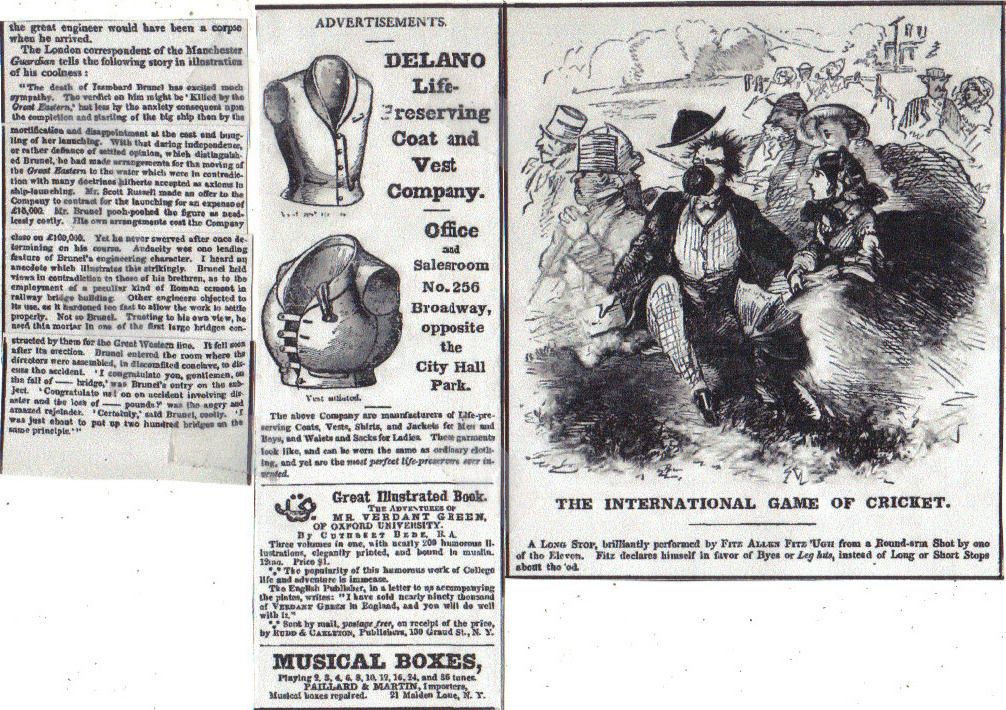
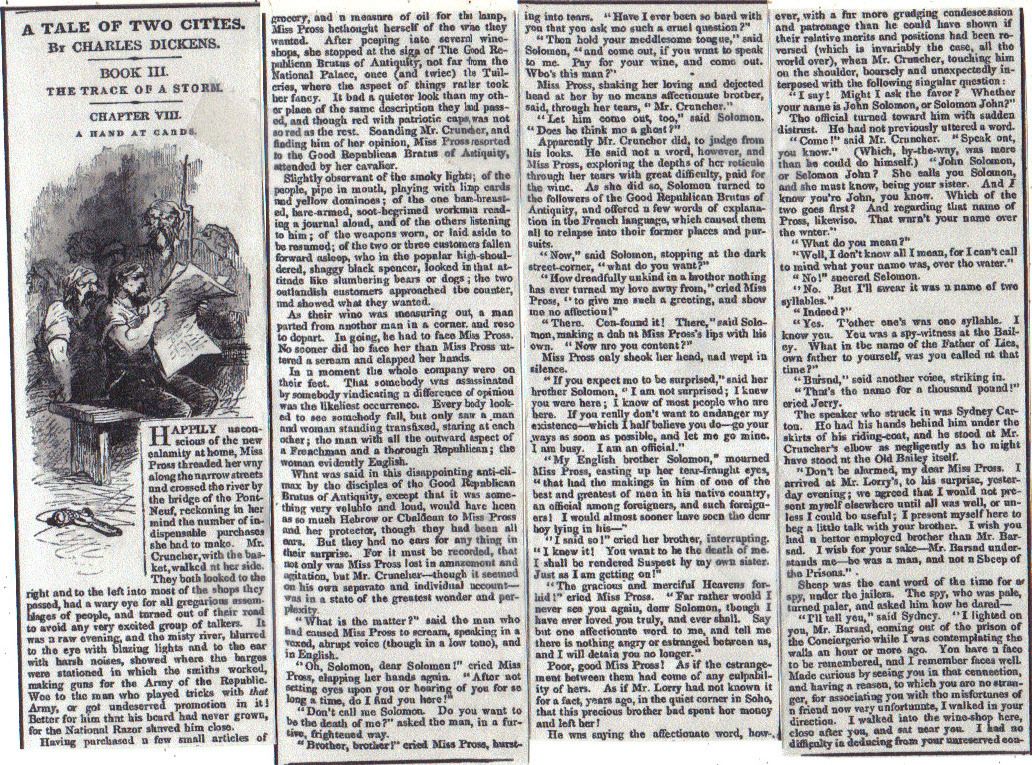
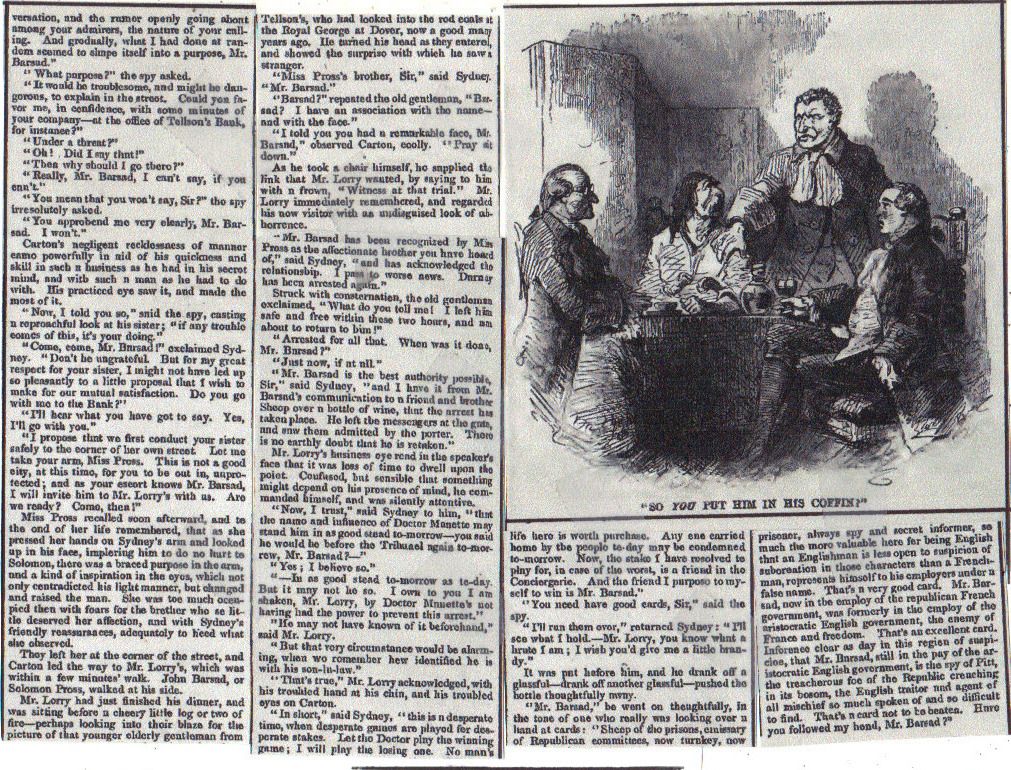
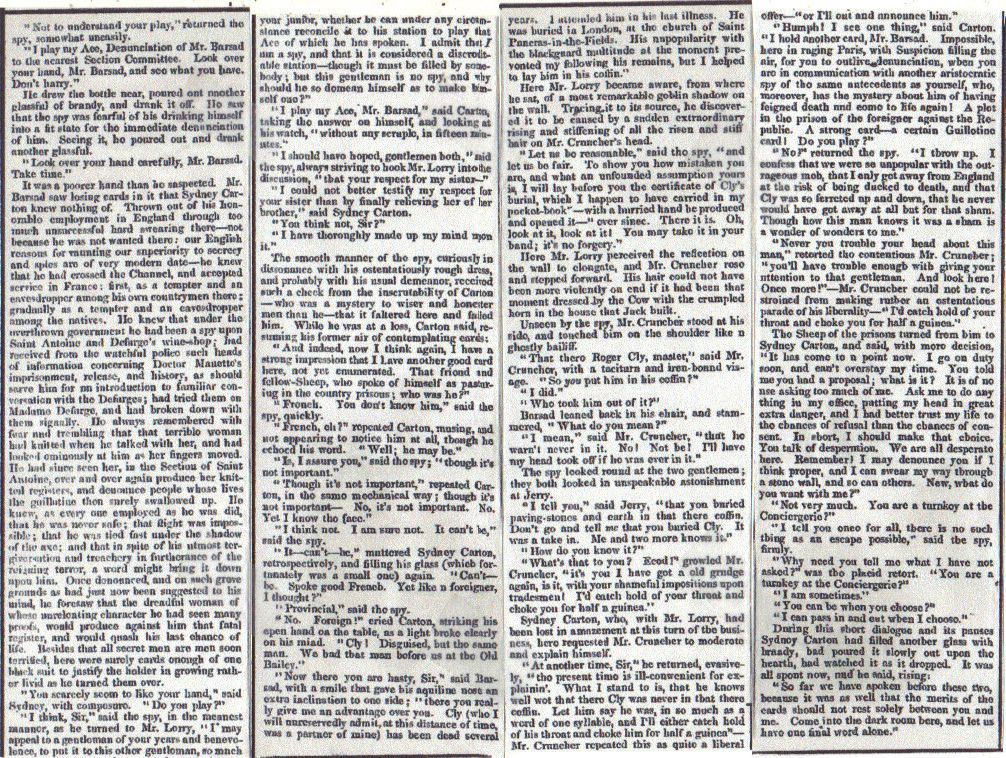
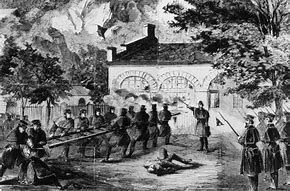
Free Republic University, Department of History presents U.S. History, 1855-1860: Seminar and Discussion Forum
Bleeding Kansas, Dred Scott, Lincoln-Douglas, Harper’s Ferry, the election of 1860, secession – all the events leading up to the Civil War, as seen through news reports of the time and later historical accounts
First session: November 21, 2015. Last date to add: Sometime in the future.
Reading: Self-assigned. Recommendations made and welcomed.
Posting history, in reverse order
To add this class to or drop it from your schedule notify Admissions and Records (Attn: Homer_J_Simpson) by reply or freepmail.
Harper’s is really down on the Germans these days. I guess it’s a change from bashing the Irish!
If I were reading this commentary on, say, the CNN website, I would be asking myself, “What is the pro-Democrat purpose this article serves?”
Is there a similar interpretive filter to be applied to Harper’s? What political agenda is served by devoting so many column inches to Germans’ weekend habits?
Jailer. I see in the papers that yon told Governor Wise you had promises of aid from Virginia, Tennessee, and the Carolina. Is that true, or did you make it up to “rile’' the old Governor?
Brown. No; I did not tell Wise that.
Jailer. What did you tell him that could have made that impression on his mind?
Brown. Wise said something about fanaticism, and intimated that no man in full possession of his senses could have expected to overcome a State with such a handful of men as I had, backed only by struggling negroes: and I replied that I bad promises of ample assistance, and would have received it too if I could only have put the ball in motion. He then asked suddenly and in a harsh voice, as you've seen lawyers snap up a witness: “Assistance! from what State, sir?” I was not thrown off my guard, and replied: “From more than you'd believe if I should name them all; but I expected more from Virginia, Tennessee, and the Carolinas than from any others.
Jailer. You “expected” You did not say it was promised from the States named?
Brown. No; I knew, of course, that the negroes would rally to my standard. If I had only got the thing fairly started, you Virginians would have seen sights that would have opened your eyes; and I tell you if I was free this moment, and had five hundred negroes around me, I would put these irons on Wise himself before Saturday night.
Jailer. Then it was true about aid being promised? What States promised it?
Brown (with a laugh). Well, you are about as smart a man as Wise, and I’ll give you the same answer I gave him.
SOURCES: Franklin B. Sanborn, The Life and Letters of John Brown, p. 571-2 & 622 where John Avis was named as Brown’s jailer.
It should be interpreted in the spirit of the time (Zeitgeist). There was and had been a steady stream of new ideas coming out of Germany, including ideas in philosophy over the previous few decades (Kant/Goethe/Hegel), all of which collectively untethered morality from religion, and then more explicitly anti-religious ideas (David Strauss), which frontally attacked Christianity.
Marx had published his Communist Manifesto about 10 years earlier, in which he espoused the ideology of class struggle in a materialistic world.
In addition, there were uprisings and revolutions going on to unify Germany, and were spilling into other parts of Europe.
Harper's was reacting to the importation of these destabilizing ideas into the calm, rustic landscape of America, where traditionalism reigned supreme, and shining the spotlight on a class of new Americans who would bring their disruptive lifestyles into the new country.
That’s very interesting, thanks!
Bttt.
5.56mm
ILLINOIS CENTRAL RAILROAD COMPANY,
Vice President's Office, Chicago, Oct. 23, 1859.
MY DEAR SIR: I regret exceedingly that I have so long delayed replying to yours of the 30th, ult. I hope this will reach you at Baton Rouge in time to serve your purposes, and must beg you to consider my rather multifarious duties as my excuse for the delay; in truth I was desirous of taking some little pains with my reply, and it has been difficult for me to find the time.
I think with you that the blue frock coat, and felt hat with a feather, with perhaps the Austrian undress cap, will be the most appropriate uniform, the grey coatee is rather behind the age.
If the academy is in the Pine Barrens, it would seem that the period from September 1 to June 20, with the two examinations you speak of, would answer every purpose. It would be almost impossible to have an encampment, I should suppose, yet you might in a very few days teach them how to pitch tents, and the more important parts of camp duty, such as guard duty, construction of field kitchens and ovens, huts for pioneers, etc.
You will find in Captain Marcy's new book The Prairie Traveller a great deal of invaluable information in reference to camps, taking care of animals, etc., on the prairies. I think you would find it worth while, if not to make it a text book, to require or advise to students to procure copies. It is a book they will read with great interest and profit — it fills a vacuum of no little importance.
I think I have at home the plates belonging to the French “Instruction pour l'enseignement de la Gymnastique.” This will give you all the information you need as to the appliances required for a gymnasium. The title is Instruction pour l'enseignement de la Gymnastique dans les corps de troupes et les etablissements militaire (Paris, I. Dumaine).
If my copy is lost I would advise you to import it. There is also a very good little work published by Dumaine, called Extrait de I'Instruction pour l'enseignement de la Gymnastique, etc., par le Capitaine C. d'Argy.
In addition to the regular instruction in the infantry and artillery manuals, I would by all means have daily practice in the gymnasium, or fencing with the foil and bayonet, and the same exercise at least half an hour a day ought to be devoted to this.
With regard to the course of instruction necessary to lay the foundation for a thorough knowledge of engineering, I do not think that the general course at West Point can be materially improved upon. We have all felt the want of practical instruction on certain points when we left West Point — e.g. in the actual use of instruments, both surveying and astronomical, topography and field sketches, railway engineering, etc. — but it is impossible to do everything in a limited time, and I would suggest that you follow in the main the West Point course, retrenching a little from some of the higher branches and adding a little to the practical instruction.
I know of no complete work on the construction of railways, it is thus far essentially a practical business. Collum and Holley's work on European Railways contains some valuable information. Lardner on the Steam Engine, Parbour on the Locomotive and Steam Engine, Collum on the Locomotive are all useful. Borden's Formula for the Location and Construction of Railroads, Haupt on Bridge construction, Moseley's Mechanical Engineering, Edwin Clarke on the Brittania and Conway Tubular Bridges, Arolis series of Rudimentary treatise on Engineering, etc., are all of value.
I regret that I am rather pushed for time tonight, as I would have liked to write more fully, but I start for St. Paul in the morning and must do the best I can in a limited time. If I can give you any further information it will afford me great pleasure to do so at any time. With my best wishes for your success in Louisiana,
SOURCE: Walter L. Fleming, Editor, General W.T. Sherman as College President, p. 40-2
ST. LOUIS, MO., Sunday, Oct. 23, 1859.
DEAR SIR: . . . It is absolutely impossible for me to leave here before Thursday of this week, the 27th, as I have some old matters of business here which I have put off until now. I was delayed two or three days by the low water of the Missouri. Therefore, however much I would like to be with you on the “Lizzie Simmons,” I must not attempt it.
I will, if there be any faith in steamboats, be at Baton Rouge, Nov. 5 and I suppose I have made a mistake in promising to see the governor at all, instead of the committee of trustees, to whom is left the preparation of things; still, as I have written the governor to that effect, I must do so, but will not delay an unnecessary moment, but hurry on to Alexandria and there meet the committee.
Knowing, as you do, the rates of travel, you can better form a judgment when I can reach your Alexandria; and if your committee will have progressed in their work they may go on, with a certainty that I will zealously enter on any task they may assign me. It seems to me no time is to be lost in preparing regulations and circulars for very wide circulation among the planters whose sons are to be cadets.
But we will soon meet and go to work, and I begin to feel now that we have a noble task and are bound to succeed.
SOURCE: Walter L. Fleming, Editor, General W.T. Sherman as College President, p. 42-3
Read with sympathy and a sense of the impossibility of any justice being done him by South or North, by partisans or people, — by the general mankind, — the newspaper accounts of Captain Brown's endeavor at Harper's Ferry, now coming to us and exciting politicians and everybody everywhere. This man I heard speak early in the season at our town hall, and had the pleasure of grasping his firm hand and of speaking with him after his lecture. This deed of his, so surprising, so mixed, so confounding to most persons, will give an impulse to freedom and humanity, whatever becomes of its victim and of the States that howl over it. There should be enough of courage and intrepidity in the North, — in Massachusetts men, — to steal South, since they cannot march openly there, rescue him from the slaveholders, the State and United States courts, and save him for the impending crisis. Captain Higginson would be good for that leadership, and No. 641 will be ready to march with the rest. Captain Brown is of Puritan stock, and comes from Connecticut. He was born at Torrington, in Litchfield County, May 9, 1800, about fifteen miles from the place of my nativity.
1 Mr. Alcott himself.
SOURCE: Franklin B. Sanborn, The Life and Letters of John Brown, p. 505-6
My Dear Sir:
I went over the subject last evening, canvassing the books and cases with great care, occupying some four hours. Enclosed is my conclusion. I see no possible way in which any one can have done anything in Massachusetts for which he can be carried to any other state. I know nothing for which you could be tried even here.
SOURCES: Franklin B. Sanborn, The Life and Letters of John Brown, p. 462; Preston Stearns, The Life and Public Services of George Luther Stearns, p. 187-8
Cambridge, Oct. 24, 1859.
My dear Higginson, — You prevent my wishes. I was going to ask you for something. Editorially, I am a little afraid of [John] Brown, and Ticknor1 would be more so. But perhaps I misunderstand you. Anyhow, as long as I edit I want you to write.
I don't quite agree with you about the last number. I think “Dog Talk” one of the cleverest articles I have printed — just on an easy, gentlemanlike level that fitted the topic. It was written, I believe, by an officer in the English army — the same who wrote “The Perilous Bivouac” and “The Walker of the Snow.” I liked them all. But heavens! could you look into my drawers! I do the best I can. As to my notice of Bartlett2 — it would have been better had I ever kept notes of Yankeeisms. Groping for them in one's memory won't do, and I wrote with the printer's devil waiting in my best easy-chair and reading my newspaper before I had looked at it — perhaps the best Americanism of the lot.
1 Messrs Ticknor & Fields had now become the publishers of the Atlantic Monthly.
2 Bartlett's “Dictionary of Americanisms.”
SOURCE: Charles Eliot Norton, Editor, Letters of James Russell Lowell, Volume 1, p. 333-4
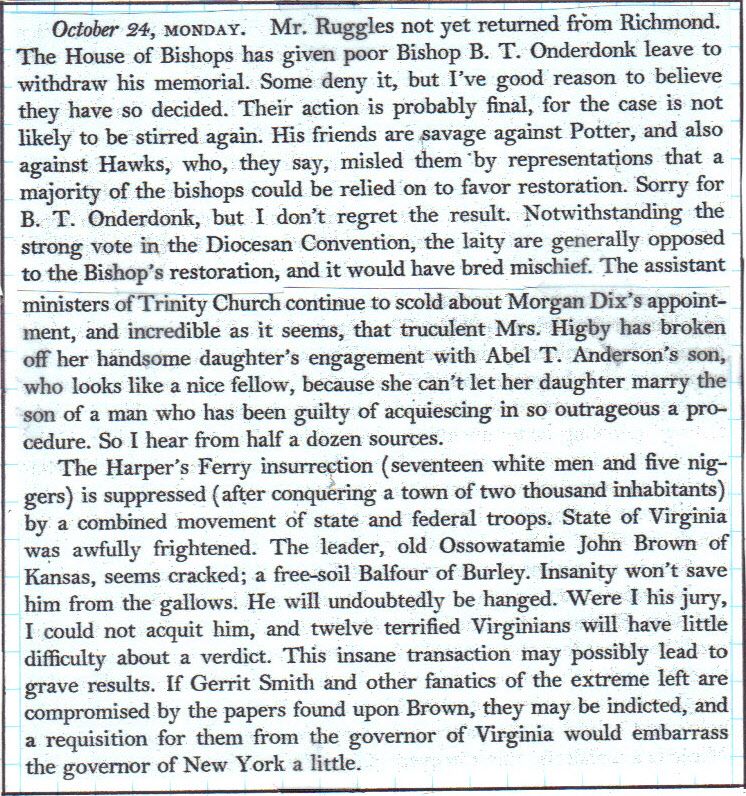
The Diary of George Templeton Strong, Edited by Allan Nevins and Milton Halsey Thomas
COLUMBUS, Oct 25, [1859.]
MY DEAR SIR: We were delighted to hear of your election to the Senate, and I was particularly gratified by your letter confirming the good news, and assuring me or your personal good will. Believe me that I value the esteem of such men as yourself far more highly than any office; and only regret, when I compare my knowledge of myself with that esteem, that I cannot feel it is better deserved.
Surely there should be no disagreement between Republicans as to the Tariff. Whatever may be any man's theoretical views of Free Trade, we are all agreed that there is no prospect of the adoption of the policy of unrestricted commercial intercourse by civilized nations during the lifetime of any of us; and no one, I believe, professes the adoption of that policy by the United States without concurrence of other nations. Certainly I do not. I am a practical man, and wish to take practical views of this Tariff question as every other, avoiding ultraism in every direction. I know that we have always had a Tariff. I know that we have never had a horizontal Tariff, unless the Compromise Act of 1833 may be called such. I know that for a long time to come, and perhaps as long as our Union shall endure, we shall have a Tariff. Now, these things being so, I am clearly of opinion that Tariff laws, like all other laws, should be so framed as to do as much good and as little harm as possible; and I am, therefore, in favor of such discriminations as will best secure and promote the interests of labor — of our own labor — and the general wellbeing of our own people. No man, in my judgment, deserves the name of an American Statesman who would not so shape American Legislation and Administration as to protect American Industry and guard impartially all American Rights and Interests.
P. S. This letter is not for publication, for I am not ambitious of the reputation of a letter-writer. But it contains nothing which I do not say to everybody who talks to me about the subject to which it relates.
* From letter-book 7, p. 55-6
SOURCE: Diary and correspondence of Salmon P. Chase, Annual Report of the American Historical Association for the Year 1902, Vol. 2, p. 281-2
The Harper's Ferry insurrection.
The papers are teeming with accounts of the late out-break at Harper's Ferry. It seems that Capt. John Brown –“old Brown” – “Ossawattomie Brown” of Kansas notoriety, has astonished the Country by the opening scene of his wild and mad project to abolish slavery by a general servile insurrection.
With only 17 or 18 white men, and 5 or 6 free negro[e]s, to aid him, he took possession of the armory and other public works at Harper's [Ferry] and had full possession of the town. This was all done by a coup de main in the night[.]
Troops, regular and volunteers, were soon brought to bear upon him, and after the killing of several citizens and soldiers, and of the most of Brown's men white and black (including his two sons) the old man, and two or three of his men were taken.
Brown himself, tho' badly wounded in the head, by sabre cuts, and in the body, by a bayonet through the kidneys, is said to have exhibited, in a very marked manner, a calm self-possession, and a cool, quiet courage, very rarely seen. He must be a madman – to say nothing of the wickedness of the design, the wild extravagance and utter futility of his plan, prove it. And his cool intrepidity and, apparently, conscious rectitude do but confirm it.
At last accounts, he was undergoing examination before the preliminary Court.
[Marginal Note.] There was found among Brown's papers, a plan of a Provisional Governmen[t] of the U S, of which it seems, he was the chief.
For the moment, the Country, especially Virginia, is mad with excitemen[t] . And, as might have been expected, the Democracy is turning every stone to make party capital out of it. Very probably, they will overdo the thing and produce a reaction.
SOURCE: Howard K. Beale, Editor, The Diary of Edward Bates, 1859-1866, p. 50-1
I did not ask for any quarter at the time I was taken; I did not ask to have my life spared. The Governor of the State of Virginia tendered me assurances that I should have a fair trial; but under no circumstances whatever shall I be able to have a fair trial. If you seek my blood, you can have it at any moment, without this mockery of a trial. I have had no counsel. I have not been able to advise with any one. I know nothing about the feelings of my fellow-prisoners, and am utterly unable to attend in any way to my own defence. My memory doesn't serve me; my health is insufficient although improving. There are mitigating circumstances that I would urge in our favor, if a fair trial is to be had; but if we are to be forced with a mere form, a trial for execution, you might spare yourselves that trouble. I am ready for my fate. I beg for no mockery of a trial, no insult, — nothing but that which conscience gives or cowardice drives you to practise. I ask again to be excused from the mockery of a trial. I do not even know what the special design of this examination is; I do not know what is to be the benefit of it to the Commonwealth. I have now little further to ask, other than that I may not be foolishly insulted, only as cowardly barbarians insult those who fall into their power.
SOURCES: Franklin B. Sanborn, The Life and Letters of John Brown, p. 572; James Campbell, Publisher, The John Brown Invasion, p. 25-6
NEW YORK, Oct. 25, 1859.
There having appeared in yesterday's “Tribune” a false and malicious attack upon me, I shall, after the trial of John Brown, publish the correspondence between himself, his friends, and myself, which correspondence commenced about two years ago, and was continued during the spring of 1859. Some Abolitionists of good judgment insisted strongly that I should make Brown desist from his projects, which they considered would prove fatal to the antislavery cause ; and as there were sundry persons in the free States interested, copies of most of the letters were furnished to each of them and to Brown. I could not myself take all the copies, therefore some friends occasionally copied for me. I feel sure that none of these letters were suffered to be seen by the Secretary of War: first, because I have faith in the reliability of those who had them in their hands: and, secondly, because it is absolutely impossible that, had such authentic evidence been placed before him, he could have been taken so by surprise as he was at Harper's Ferry.
H. FORBES.
SOURCE: Franklin B. Sanborn, The Life and Letters of John Brown, p. 426
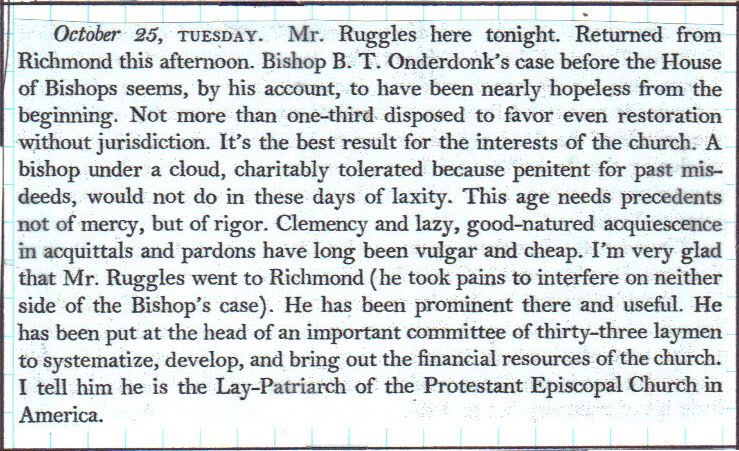
The Diary of George Templeton Strong, Edited by Allan Nevins and Milton Halsey Thomas
Mr. Strong’s religious observations have many an echo today. I’m often encouraged by reminders that “There is nothing new under the sun.” It might not seem encouraging to note that we have all the same old problems forever, but for me, it means that it’s not all my fault.
That's right. So many of our problems can be traced back to that snake and his apple.
The John Brown raid is perplexing if not vexing. The resort to violence against a federal installation was just wrong in so many ways. On the other hand, why weren’t more clear thinking people asking themselves, can the slavery issue be solved short of violence? The Brown raid should have been an indication that maybe it can’t.
I think that idea began to crystalize in many minds, north and south, before the year 1859 came to an end.
Good observations, colorado tanker.
“Can the slavery issue be solved short of violence?”
Only if people were rejiggered to be very different from the way they really were. It reminds me of some discussions regarding that future war, when we pointed out that you couldn’t go anywhere with “What if?” if the “if” required that Hitler be different from the way he actually was.
On the other hand, the civilized world - and some parts that I’m dubious about - has eradicated legalized human bondage. On the other, other hand, the impulse to regard “those people” as a lesser breed of human (or not human at all), compared to the “good people” like me, doesn’t seem to have gone anywhere.
R. M. Field14 brot' to my office and introduced to me, his college mate, Judge Saml. Miller, of Rochester N. Y. He is retired from business – being rich, I suppose – and has been travelling thro' the Southern states, Cuba &c[.] He seems to be a warm politician, a whig, I suppose, as he claims special friendship with Govr. Hunt15 – He has served in the N. Y. Senate, and has been a Judge.
Says he is personally very friendly with Mr. Douglas, who is a relative of his wife.
Also, there was introduced to me today, Mr. Henry Livingston, editor of the Alta California.
I had an hours [sic] talk with him and find him a pleasant, intelligent man. Judge Miller (who casually met him in my office) says he knew him in his youth, that his father is a worthy citizen of Rochester, now fallen poor.
[Three clippings from the St. Louis Evening News : 1. “Gov. Wise16 and Old Brown”17 quoting at length from a Richmond speech in which Governor Wise characterized Brown; 2.”Pierce for President” predicting that the Pierce men will lie low until Douglas, Wise, Hunter,18 and Breckinridge6 have defeated each other and will then try to secure Pierce's nomination as a dark horse; 3. “Gov. Wise Ahead” pointing out how fortunate the John Brown raid was for Governor Wise's aspirations for the nomination for President.]
14 Roswell M. Field : St. Louis lawyer who initiated and tried the Dred Scott case in the Circuit Court ; a staunch unionist who helped prevent Missouri's secession ; an authority on land-title disputes arising out of the conflicting claims under Spanish, French, and congressional grants prior to the organization of the State.
15 Washington Hunt: Whig governor of New York, 1850-1852 ; congressman, 1843-1849; supporter of the Compromise of 1850 ; chairman of the Whig National Convention in 1856; chairman of the Constitutional Union Convention which nominated Bell and Everett in 1860; McClellan Democrat in 1864 ; delegate to Johnson's National Union Convention in 1866.
16 Supra, April 28, 1859, note 38.
17 Supra, Oct. 25, 1859.
18 Rohert M. T. Hunter of Virginia : Democratic congressman, 1837-1861; Confederate secretary of State, 1861-1862; then Confederate senator, 1862-1865; representative of the Confederacy at the Hampton Roads Conference with Lincoln and Seward in 1865. He was a leading advocate of states' rights and a strong candidate for the nomination for the Presidency in the Democratic Convention at Charleston in 1860. He remained in the Senate in 1861 until Virginia seceded.
19 John C. Breckinridge of Kentucky: Democratic congressman, 1851-1855; vice-president of the U. S., 1857-1861; U. S. senator, 1861; candidate of the Southern Democracy for the Presidency in 1860 ; opponent of congressional action on slavery in the Territories. When the War came he believed in the abstract right of secession but opposed it in practice, and yet also opposed coercion of states to keep them in the Union. He tried to secure adoption of the Crittenden Compromise, but finally joined the Confederate Army, became brigadier-general, fought in Kentucky in 1861-1862, at Shiloh. Vicksburg, Baton Rouge, and Port Hudson in 1862, at Jackson, Chickamauga, and Missionary Ridge in 1863, and in southwest Virginia, at Cold Harbor, in the Shenandoah, and in Early's raid on Washington in 1864. In February, 1865, he was made Confederate secretary of War.
SOURCE: Howard K. Beale, Editor, The Diary of Edward Bates, 1859-1866, p. 51-2
WAYLAND, Mass., Oct. 26, 1859
GOVERNOR WISE: I have heard that you were a man of chivalrous sentiments, and I know you were opposed to the iniquitous attempt to force upon Kansas a Constitution abhorrent to the moral sense of her people. Relying upon these indications of honor and justice in your character, I venture to ask a favor of you. Enclosed is a letter to Capt. John Brown. Will you have the kindness, after reading it yourself, to transmit it to the prisoner?
I and all my large circle of abolition acquaintances were taken by surprise when news came of Capt. Brown’s recent attempt; nor do I know of' a single person who would have approved of it, had they been apprised of his intention. But I and thousands of others feel a natural impulse of sympathy for the brave and suffering man. Perhaps God, who sees the inmost of our souls, perceives some such sentiment in your heart also. He needs a mother or sister to dress his wounds, and speak soothingly to him. Will you allow me to perform that mission of humanity? If you will, may God bless you for the generous deed!
I have been for years an uncompromising Abolitionist, and I should scorn to deny it or apologize for it as much as John Brown himself would do. Believing in peace principles, I deeply regret the step that the old veteran has taken, while I honor his humanity towards those who became his prisoners. But because it is my habit to be as open as the daylight, I will also say, that if I believed our religion justified men in fighting for freedom, I should consider the enslaved every where as best entitled to that right. Such an avowal is a simple, frank expression of my sense of natural justice.
But I should despise myself utterly if any circumstances could tempt me to seek to advance these opinions in any way, directly or indirectly, after your permission to visit Virginia has been obtained on the plea of sisterly sympathy with a brave and suffering man. I give you my word of honor, which was never broken, that I would use such permission solely and singly for the purpose of nursing your prisoner, and for no other purpose whatsoever.
SOURCE: The American Anti-Slavery Society, Correspondence between L. M. Child and Gov. Wise and Mrs. Mason, of Virginia, p. 3-4
WAYLAND, Mass, Oct. 26, 1859.
DEAR CAPT. BROWN: Though personally unknown to you, you will recognize in my name an earnest friend of Kansas, when circumstances made that Territory the battle-ground between the antagonistic principles of slavery and freedom, which politicians so vainly strive to reconcile in the government of the United States.
Believing in peace principles, I cannot sympathize with the method you chose to advance the cause of freedom. But I honor your generous intentions — I admire your courage, moral and physical. I reverence you for the humanity which tempered your zeal. I sympathize with you in your cruel bereavement, your sufferings, and your wrongs. In brief, I love you and bless you.
Thousands of hearts are throbbing with sympathy as warm as mine. I think of you night and day, bleeding in prison, surrounded by hostile faces, sustained only by trust in God and your own strong heart. I long to nurse you — to speak to you sisterly words of sympathy and consolation. I have asked permission of Governor Wise to do so. If the request is not granted, I cherish the hope that these few Words may at least reach your hands, and afford you some little solace. May you be strengthened by the conviction that no honest man ever sheds blood for freedom in vain, however much he may be mistaken in his efforts. May God sustain you, and carry you through whatsoever may be in store for you!
SOURCE: The American Anti-Slavery Society, Correspondence between Lydia Maria Child and Gov. Wise and Mrs. Mason, of Virginia, p. 14
BOSTON, October 26, 1859.
DEAR SIR, — From the telegraphic report of the trial of Captain Brown it appears to be uncertain whether he will have a trial in the usual form. Permit one who loves the whole country as much as yourself to urge on you the necessity of securing this. Brown is a Puritan whose mind has become disordered by hardship and illness. He has the qualities which endear him to our people, and his sudden execution would send a thrill of horror through the whole North. From his blood would spring an army of martyrs, all eager to die in the cause of human liberty. I am sure that I express the desire of all conservative men here, when I beg you to insist on a fair trial.
Respectfully and truly,
SOURCE: William Lawrence, Life of Amos A. Lawrence: With Extracts from His Diary and Correspondence, p. 134-5
The affair has excited profound sensation, and, let me add, profound consternation at the South. The secrecy with which the plot was brought to maturity, the large quantity of arms and ammunition which Brown had collected, the facility with which he surprised the village and seized the armory, the desperate tenacity with which he held it, the resolution displayed by all his followers from first to last, and more than all, Brown's dauntless bearing since his capture, the lofty tone of moral superiority which he assumes over his captors, have made a profound impression on the Southern people. They have long been in the habit of accusing the abolitionists of tampering with the negroes and instigating them to flight or revolt, but it was always supposed to be in an underhand, sneaking way. The popular notion of an abolitionist made him above all things a coward. But here is at least a small taste of servile war, avowedly begun by this detested crew, and what manner of men do they find them to be? Why, 15 of them suffice to raise the whole State of Virginia into wild affright, to call out all its militia, to bring Federal troops from the capital, to seize on an armory, and defend it for two days, and when it was at last stormed by an overwhelming force, 13 of these poltroons are found to have died at their posts, rifle in hand; two only came out alive, these desperately wounded and glorying in their crime. It is no wonder if the South feels that an abyss has opened at their feet.
They first resorted to physical force as a means of extending slavery in Kansas, counting confidently on Northern pusillanimity. But the fighting had not gone on very long before the crust of peaceful habits wore off the Yankees, and the old whining, praying, unconquerable Puritan burst out. The South, as we know, finding they had raised a legion of devils, quitted the field and called for peace; but, when Yankees once begin to fight, it grows on them, and they were not now disposed to cry quits so easily. So the war has been carried into the enemy's territory. The damage done is, to be sure, very trifling. Only half a dozen negroes joined Brown's enterprise, but it is acknowledged that this is mainly to be ascribed to his having chosen a bad scene of action. In that part of Virginia the negroes are few in number, and a large number of them house servants, and the farms comparatively small. Had he thrown himself into the cotton States, amongst the great plantations, where a thousand blacks often toil for a single owner, — tantalized by hard work, exposure, and the overseer's lash, — and offered them arms and bid them follow him, no man dares to say he would have been crushed without untold horrors. The panic his mad effort has spread proves in what horrible insecurity men dwell south of Mason and Dixon's line, what a flaming sword hangs suspended over the whole slave region, and how deeply the white population feels its danger.
I do not defend, and no one can defend, Brown's conduct. His attempt, had it even half succeeded, could only have bred massacre and desolation. If the Southerners had themselves failed to restore order, — and my firm belief is that if a general negro insurrection ever does take place they will fail, — the North would be compelled, if only for humanity's sake, to step in and quell the revolt. If the condition of the blacks is ever to be really improved, it must be peacefully, and gradually. But in spite of all this, no one can see a gray-headed man, who has lost five sons in the cause of freedom, step in, with the last survivor of his family by his side, between the slave and his master, and with his 13 other companions bid defiance to a whole State in the name of the Lord of Hosts, without more or less admiration. There is something grand in the old fellow's madness, and those here at the North who most condemn him, acknowledge him to be well worthy, if not of a better, of a more hopeful cause, and of a happier fate than that which now awaits him.
SOURCE: Rollo Ogden, Editor, Life and Letters of Edwin Lawrence Godkin, Volume 1, p. 190-2
I do not intend to detain the Court, but barely wish to say, as I have been promised a fair trial, that I am not now in circumstances that enable me to attend to a trial, owing to the state of my health. I have a severe wound in the back, or rather in one kidney, which enfeebles me very. much. But I am doing well, and I only ask for a short delay of my trial, and I think I may get able to listen to it; and I merely ask this, that, as the saying is, “the devil may have his dues,” — no more. I wish to say, further, that my hearing is impaired and rendered indistinct, in consequence of wounds I have about my head. I cannot hear distinctly at all. I could not hear what the Court said this morning. I would be glad to hear what is said on my trial, and I am now doing better than I could expect to be under the circumstances. A very short delay would be all I would ask. I do not presume to ask more than a very short delay, so that I may in some degree recover, and be able at least to listen to my trial, and hear what questions are asked of the citizens, and what their answers are. If that could be allowed me, I should feel very much obliged.
SOURCES: Franklin B. Sanborn, The Life and Letters of John Brown, p. 573; S. S. Peloubet & Company, Publisher, Remarkable Trials of All Countries, Volume 2, p. 51-2 for the date.
I also remember Robert Toombs' speech to the Georgia legislature after Lincoln's election. That speech made very clear that the coming war would be fought over the slavery issue. In that speech he repeatedly referred to the slaves as "property." He never regarded them as human beings.
Disclaimer: Opinions posted on Free Republic are those of the individual posters and do not necessarily represent the opinion of Free Republic or its management. All materials posted herein are protected by copyright law and the exemption for fair use of copyrighted works.